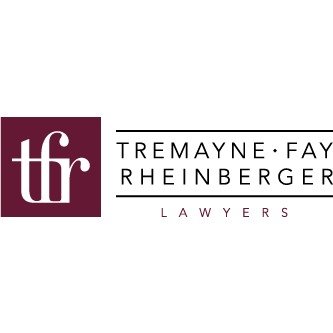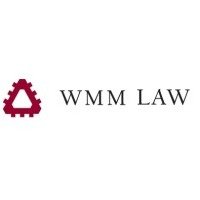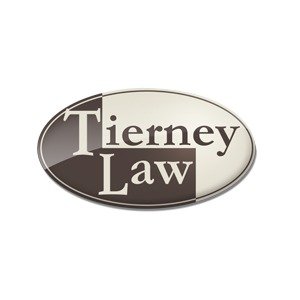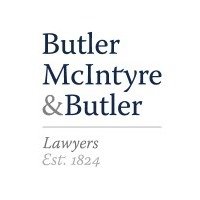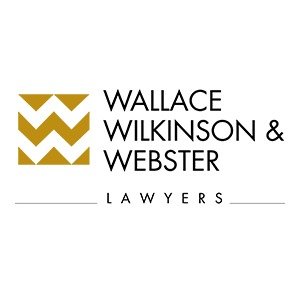Best Elder Abuse Law Lawyers in Hobart
Share your needs with us, get contacted by law firms.
Free. Takes 2 min.
List of the best lawyers in Hobart, Australia
About Elder Abuse Law in Hobart, Australia
Elder abuse law in Hobart, Australia, is designed to protect older individuals from abusive behaviors which can be physical, emotional, financial, or neglectful in nature. As Tasmania places a high priority on respecting and safeguarding its older citizens, comprehensive laws and strategies have been established to address and prevent elder abuse. This area of law deals with the rights and protection of elderly individuals, ensuring they are treated with dignity and respect, and helps to provide measures to combat any form of abuse that may occur.
Why You May Need a Lawyer
There are several situations where individuals may require legal help in the area of elder abuse law, including:
- Suspicions or evidence of physical or emotional abuse occurring within a care facility or at home.
- Financial exploitation by family members, caregivers, or others.
- Cases of neglect where an elderly person's basic needs are not being met.
- Conflicts related to power of attorney or guardianship arrangements.
- Need for advice on protecting the elderly person's assets and finances.
- Desire to understand the rights of elderly individuals under Tasmanian law.
Local Laws Overview
In Tasmania, elder abuse law includes various statutes and policies aimed at the protection of older individuals. Key aspects include:
- The Elder Abuse Prevention Strategy, which provides a framework for responding to incidents of elder abuse.
- Protections under the Family Violence Act 2004, which may cover cases of elder abuse within domestic settings.
- Guardianship and Administration Act 1995, which governs the appointment and duties of guardians or administrators.
- Civil actions and support services available to elders and affected families.
- The utmost priority on elder rights, promoting both preventive measures and responsive actions against abuse.
Frequently Asked Questions
What is considered elder abuse under Hobart law?
Elder abuse includes physical, emotional, sexual abuse, financial exploitation, and neglect. It can occur anywhere, including private homes and care facilities.
Who can report elder abuse?
Anyone who suspects elder abuse - family members, friends, professionals, or neighbors - can and should report it to authorities.
What steps are taken after a report of elder abuse is made?
Authorities will open an investigation, assessing the situation with input from social services, medical professionals, and, if necessary, law enforcement.
Is it necessary to provide evidence when reporting elder abuse?
While evidence strengthens a report, it is not required to make an initial report; suspicions can be enough to initiate a preliminary investigation.
What are the potential legal outcomes of an elder abuse case?
Outcomes may include removal of the offender from their position of power, criminal charges, financial restitution, or changes to guardianship arrangements.
Can elder abuse impact power of attorney or guardianship agreements?
Yes, abusive behavior can lead to reevaluation and termination of existing power of attorney or guardianship agreements, protecting the elder individual.
What protections are in place for those reporting elder abuse?
Reports can often be made anonymously, and protections exist to shield reporters from retaliation, encouraging them to come forward without fear.
How can an elder person protect themselves legally from abuse?
Elder individuals can regularly review financial statements, choose trustworthy advocates, and consult with a lawyer to ensure all legal documents reflect their true wishes.
What support services are available for victims of elder abuse?
Support includes counseling services, financial advising, legal representation, and emergency accommodation if necessary.
Can elder abuse occur in residential aged care facilities?
Yes, elder abuse can occur in any setting, and Australia has regulations in place to protect elderly residents of care facilities and investigate any claims of abuse.
Additional Resources
For those seeking further information or assistance, consider these resources:
- The Elder Abuse Helpline, providing confidential support and advice.
- Tasmania Legal Aid, which offers free or low-cost legal advice.
- Local community health services, which can offer both medical and social support.
- Office of the Public Guardian, for issues related to guardianship and administration.
Next Steps
If you believe yourself or someone else is a victim of elder abuse, you should:
- Contact the Elder Abuse Helpline for immediate advice and support.
- Consult with a legal professional experienced in elder abuse law to understand rights and possible legal actions.
- Report any suspicions or evidence of abuse to the appropriate authorities promptly.
- Reach out to local agencies for additional support services tailored to elder needs.
Taking timely action can significantly impact the protection and well-being of the elderly individual involved.
Lawzana helps you find the best lawyers and law firms in Hobart through a curated and pre-screened list of qualified legal professionals. Our platform offers rankings and detailed profiles of attorneys and law firms, allowing you to compare based on practice areas, including Elder Abuse Law, experience, and client feedback.
Each profile includes a description of the firm's areas of practice, client reviews, team members and partners, year of establishment, spoken languages, office locations, contact information, social media presence, and any published articles or resources. Most firms on our platform speak English and are experienced in both local and international legal matters.
Get a quote from top-rated law firms in Hobart, Australia — quickly, securely, and without unnecessary hassle.
Disclaimer:
The information provided on this page is for general informational purposes only and does not constitute legal advice. While we strive to ensure the accuracy and relevance of the content, legal information may change over time, and interpretations of the law can vary. You should always consult with a qualified legal professional for advice specific to your situation.
We disclaim all liability for actions taken or not taken based on the content of this page. If you believe any information is incorrect or outdated, please contact us, and we will review and update it where appropriate.



